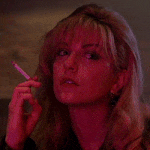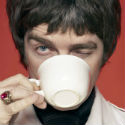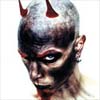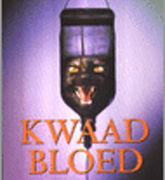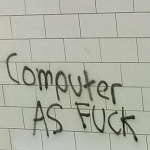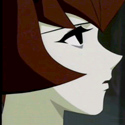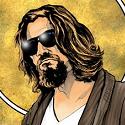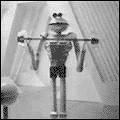|
Just finished the Grey Knights Omnibus by Ben Counter. It was a fairly typical series within the 40k universe, with the Grey Knights confronting the worst of the daemonic threats across the Imperium with the majority of the chapters spent investigating the threat before a typically quick one chapter battle scene. However, I thought it really achieved excellence in the final book when they rid Alaric of his psychic defense and truly broke him.
|
|
|
|

|
| # ? May 14, 2024 22:03 |
|
funkybottoms posted:You notice the conspicuous lack of a certain "r" word? Yes, definitely. To avoid going into spoiler territory, I'll just say I found that very odd. I also just finished the archived copy of John and Dave and the Temple of X'al'naa'thuthuthu (as well as the original posting of John Dies) and it was very clearly a prototype. Definitely an interesting read, though it is clearly very different than Spiders was.
|
|
|
|
What is the R word you guys are talking about. I read JDATE years ago and don't remember it either.
|
|
|
|
Hedrigall posted:What is the R word you guys are talking about. I read JDATE years ago and don't remember it either. If both of us are thinking about the same "word", the thing I'm referencing isThe lack of Robert North in Spiders despite the scene where he puts a spider into Dave's mouth in John Dies. That being said, there are many things from the first book that are never mentioned in the second, which is something that I think Wong did to make it easier for people to jump into considering how John Dies wasn't the most well-selling book in history. Interestingly, I was comparing the print copy of John Dies to the original web archive copy and there are major differences. I'd still recommend the full print copy above the "original" because what ended up being cut out and edited wasn't strong enough to warrant saving.
|
|
|
|
laplace posted:If both of us are thinking about the same "word", the thing I'm referencing is... No, the word is "retarded," which appeared dozens of times in the first book. Guess somebody gave him a hard time about it. Read an advance copy and posted about it a while back, but, yeah, not nearly as good as the first. It might actually be funnier, but the plot is very familiar and much more reliant on gore and splatter than atmosphere and weirdness- I even wonder if it might have been an existing plot reworked to fit into John and David's universe. I still liked it, but it felt like a step backwards from JDATE.
|
|
|
|
The Face of God (2002) – Bill Myers Myers wrote an absolutely cracking good thriller a few years back called Blood of Heaven, about a serial murderer injected with DNA taken from a newly found artifact, DNA believed to be that of Jesus Christ. It’s a whip-smart, great read; this is about the third book of his I’ve read since reading Blood of Heaven and all of the other books he’s ever written, apparently, suck tremendously. This one certainly does. This one involves twelve stones from Old Testament times that supposedly enable one to hear the voice of God, if all twelve stones are brought together. Cue mad dash after stones by figures as varied as a CIA assassin, a radical Muslim cleric and a disillusioned, recently widowed protestant pastor. Cue also about the stupidest book I’ve ever read. Blood of Heaven was astounding, but apparently Myers is trying to move in a more main-stream direction; Blood of Heaven doesn’t even appear on his Wikipedia Bibliography. Way to write your only good book out of your history, dude. What an idiot. One great book has made me subject myself to a lot of stupidity chasing another one like it. No more; I doubt I’ll try anything else this author has to offer. Would that he would be as iconoclastic, as dark, as weird, as violent as Blood of Heaven again. It seems it is not to be. The Hundred & One Dalmatians (1956) – Dodie Smith Perfectly charming British book that is supposedly for kids, but is equally pleasurable for adults. The classic Disney movie followed the plot pretty closely, but there are enough differences to keep fans of the movie on their toes, thanks to some characters excised from the movie for time. Told in the timeless, warm style of British children’s novels; there’s nothing better on a cold winter day than curling up with a witty, kind British author for some comfort. This book even gives a happy ending to a cat! Now that’s the milk of human kindness.  Stuart Little (1945) – E.B. White, Garth Williams White’s first book for children (and also the first for soon to be famed illustrator Garth Williams) and a quiet triumph. It’s more episodic and not as perfectly crafted as Charlotte’s Web, but the charms of the later book are evident here as well. White’s tone is a calming one and, if this book doesn’t hold up for adults as well as Charlotte’s Web does, it works well enough. The first step in raising a child that loves great literature is to introduce them to quality young; Stuart Little is a good first step. Arsenic and Old Lace (1939) – Joseph Kesselring The play that inspired the riotous film with Cary Grant. Some people don’t like the film much, but I do. The film is incredibly faithful down to the tiniest detail; I can’t, a while after reading it, remember any specific differences between play text and finished film. It’s a hoot, but not necessarily worth a read; it’s such a manic play that it’s better experienced than read. The Front Page (1928) – Ben Hecht, Charles MacArthur Even more manic and fast-paced play than Arsenic & Old Lace. It’s been given the feature film treatment four times, the television treatment four times and a couple of musical treatments. It’s the story of a cut-throat editor scheming to hold onto his best reporter, who is dead set on quitting the paper to get married. The dialogue has the ring of truth and even on the page it crackles; the film version to see is definitely His Girl Friday, which turned the reporter into a female, in the person of Rosalind Russell, and put Cary Grant (again) in the role of the violently sociopathic, yet charming, editor. The play is still worth a read; the gender swap isn’t the only difference. The play has more emphasis on some of the film’s subplot and some of the dialogue has been bowdlerized in the film. In particular, the play has one of the most hilarious and surprising final lines of all time and it’s absent from His Girl Friday. Watch His Girl Friday; then read the play. What a one-two punch of brilliance.
|
|
|
|
The Graveyard Book by Neil Gaiman I love the simplicity of this "coming of age" story juxtaposed with what is really quite a macabre twist. For anyone other than Gaiman, a children's book that opens with murder, is filled to the brim with ghosts and ghouls, and is driven by a serial killer plot, it would be too much of an undertaking. Instead, The Graveyard Book is charming and subtle. I'd recommend this to any urban fantasy fan. Sacre Bleu: A Comedy d'Art by Christopher Moore This is such a fun book to read, especially for fans of Impressionism and post-Impressionism (the book name drops various famous artists and includes pictures of well-known paintings woven throughout the story). The plot follows a band of French artists who try to unravel the mystery of why Vincent Van Gogh killed himself. There were moments in the middle that dragged a bit, but that didn't sully my overall enjoyment. Granted, I've never read Moore before and I've heard his stuff is hit or miss, but I found this lighthearted, comedic, and unique.
|
|
|
|
Skeleton Crew, by Stephen King. There were a number of fantastic stories in here, most notably The Mist (how's the movie adaptation of that?), Mrs. Todd's Shortcut, The Jaunt and Morning Deliveries, but I really felt alternately bored and disappointed by most of the second half of the book. Most of the stories were endless Northeast slice of life drivel with some kind of murder or weird thing at the end, and a solid three stories were almost entirely one person narrating events to other people as a pointless second level separating the reader from the story (Part of The Ballad of the Flexible Bullet went a step further, narrating a guy narrating what his crazy friend was narrating in the past). I kind of feel like deep down, Stephen King wants to write a full-length horror-free novel about families hanging out in Maine and drinking beer and telling stories with no overarching story or significance.
|
|
|
|
Just finished Eight Skilled Gentlemen, and thus, the Chronicles of Master Li and Number Ten Ox. I liked it more than The Story of the Stone, but less than Bridge of Birds. The author originally stated that he stopped writing them due to publisher stupidity, but more recently has said that he felt that if he wrote more books in that setting he'd just be repeating himself; I have to agree, and while I did enjoy the latter two books, I kind of feel that the Chronicles would have been better overall had they consisted only of The Bridge of Birds.
|
|
|
|
I just finished The Blade Itself, by Joe Abercrombie. Love love love loved it. Can't wait to read the next book. BUT it will have to wait, for The Fractal Prince awaits.
|
|
|
|
|
Rogue1-and-a-half posted:
Thank you - this reminds me to keep my eyes open for books to read to my baby once she gets a little older (well, she's not born yet, but soon!). Plus, what a darling book cover. I also finished another book recently: The Wool Omnibus by Hugh Howey This collection has been getting a lot of hype lately, and since I love dystopian literature, I had to pick it up. The first two stories started off well - exciting, nicely paced, mysterious, subtle. I was intrigued and looking forward to the payoff at the end of the series. However, somewhere around the third story, the plot began to drag. And drag. I give the author a lot of credit, as I understand this was independently released so I'm assuming he had no editor or other outside influencers. However, I think the collection would have benefited from tightening up. I began to skip over lengthy passages that felt unnecessary and, frankly, boring. Unfortunately, I personally wasn't able to recover the excitement I felt from the first two stories, so I wouldn't give this more than three out of five stars. It's an interesting dystopian concept about the balance between protection and control, but suffers some unfortunate flaws.
|
|
|
|
Ragtime for an American History class, it was good, the author really knew a lot about the early 1900s.
|
|
|
|
Just finished Zombie by Joyce Carol Oates. Sort of a fictionalized diary of a Jeffrey Dahmner-esque serial killer. Pretty chilling. Short, quick read--kinda reminded me of The Wasp Factory by Iain M. Banks, but not quite as... weird...
|
|
|
|
frenchnewwave posted:The Wool Omnibus by Hugh Howey I find this odd because I read the whole thing in a blink of an eye and I've always considered myself a slow reader. It's not often I devour a book and Wool Omnibus was the first in a long time. I never had the chance to notice any dragging I was way too engrossed. Content. I just finished Dune and yea I'm glad I finished it. Very tedious read for me and I have no interest in reading the rest. It had some interesting moments and concepts it's just not for me.
|
|
|
|
Ingram posted:Content. I just finished Dune and yea I'm glad I finished it. Very tedious read for me and I have no interest in reading the rest. It had some interesting moments and concepts it's just not for me. Depending on what you liked about Dune, you can get much smaller, lighter, single-servings of just about everything in it by reading Herbert's other non-Dune novels.
|
|
|
|
Cryptonomicon by Neal Stephenson. I thought it was excellent although found it a bit hard to catch some of the events towards the end. Ended abruptly too, but overall very enjoyable.
|
|
|
|
tonytheshoes posted:Just finished Zombie by Joyce Carol Oates. Sort of a fictionalized diary of a Jeffrey Dahmner-esque serial killer. Pretty chilling. Short, quick read--kinda reminded me of The Wasp Factory by Iain M. Banks, but not quite as... weird... I read Zombie! Fantastic and compact read.
|
|
|
|
The Fractal Prince by Hannu Rajaniemi. The terminology made these books difficult to read at the beginning but I found the experience to be similar to Neal Stephenson's Anathem, where I eventually began to understand the words and that's when I really began to enjoy the book. Still, I wish I understand the theories behind what he is basing the science of the book off of.
|
|
|
|
avisgoth posted:Ended abruptly quote:by Neal Stephenson. There's your problem.
|
|
|
|
The Beautiful Mystery by Louise Penny. This is #8 in a series, and apparently this is a series where you need to start at #1 or you will miss out on 3/4 of the plot. However, the resolution of this plot and the events mentioned have spoiled those previous books (and I don't even know which ones they are). So this was a bad one to start with and left me not inclined to read more, even though the writing was great--very evocative, good characters, and a lot of research (which nonetheless did not make me buy a couple of the key points). The first part of the book was slow; then it picked up; then it slowed way down again (at least for me, since I hadn't read the book that referenced the events; if I had it might also have felt slow because I was re-experiencing those events). The ending was an obvious cliff-hanging (oh what will happen you have to read the next book) and I guess that does sell books, but I don't appreciate it. When She Was Good by Laura Lippman. I really liked this one; I pretty much like all Laura Lippman's books and in view of the review above, I have to say, in her series she does not spoil previous books and doesn't over-reference them, with one possible exception, and in her stand-alones--like this one--she often throws in a character or two from the series, and I like that a lot. Basically in this book Heloise is a high-class escort who learns that she has a surprising, and possibly dangerous, connection to a not-so-high-class escort whose suicide was really a murder. This was a good read with some heart-stopping tension and heart-breaking angst for the main character.
|
|
|
|
Mr. Penumbra's 24-Hour Bookstore by Robin Sloan. 4 stars! This is a charming little novel about codes, typography, secret societies and books. It's short, the story goes by in a flash, but all the characters are likeable and the ride is an enjoyable one. The book is a celebration of information in all forms, from antique methods to the newest technology. It's also perfect geek fodder, with references to sci-fi, fantasy, technology etc. Overall, it's very light, uplifting reading. The tone and mystery/fantasy elements reminded me a little of a less-depressing version of The Magicians by Lev Grossman. This book also features a fictional series of fantasy novels in a crucial role, so I recommend it for anyone who liked that part of The Magicians.
|
|
|
|
Smallworld and Littlestar by Dominic Green. I was skeptical at first, but as the stories developed it was a book I couldn't turn away from. Such a nice balance of sci-fi, satire and dry humor. There were a few laugh out loud moments and people looking at me on the metro oddly. Smallworld, the first in the series, is free on nook/kindle, Littlestar is $2.99. Well worth the read and hopefully Green will produce another one.
|
|
|
|
I just finished His Dark Materials, and I really enjoyed it. The second book had places where it dragged a little, but this has quickly become one of my favorite series of books.
|
|
|
|
Finished Philip Roth's American Pastoral a little while ago. I really enjoyed it, and it has this great postmodern angle on character analysis. The book is filled with instances in which one character claims to know the truth about another, and then their world view gets shattered and they have to reassess. This quote sums it up nicely.quote:“You fight your superficiality, your shallowness, so as to try to come at people without unreal expectations, without an overload of bias or hope or arrogance, as untanklike as you can be, sans cannon and machine guns and steel plating half a foot thick; you come at them unmenacingly on your own ten toes instead of tearing up the turf with your caterpillar treads, take them on with an open mind, as equals, man to man, as we used to say, and yet you never fail to get them wrong. You might as well have the brain of a tank. You get them wrong before you meet them, while you're anticipating meeting them; you get them wrong while you're with them; and then you go home to tell somebody else about the meeting and you get them all wrong again. Since the same generally goes for them with you, the whole thing is really a dazzling illusion. ... The fact remains that getting people right is not what living is all about anyway. It's getting them wrong that is living, getting them wrong and wrong and wrong and then, on careful reconsideration, getting them wrong again. That's how we know we're alive: we're wrong. Maybe the best thing would be to forget being right or wrong about people and just go along for the ride. But if you can do that -- well, lucky you.” I'm still in a big Roth kick, so its The Counterlife next.
|
|
|
|
Three books I finished recently: Telegraph Avenue - Michael Chabon The story of two friends, one black, one white, who run a record store in the Berkeley/Oakland area together. A mega-chain owned by a former NFL player is threatening their livelihood and their bond with each other. Overall, I really enjoyed it - Chabon hasn't ever let me down, and his writing is as great as always - but I felt like the two main characters, Nat and Archy, tended to fade into the background for the more interesting side characters. The plot with their wives, Aviva and Gwen, seemed fairly disconnected with everything else, as well. Still, I dug it. St. Lucy's Home for Girls Raised by Wolves - Karen Russell I read Russell's Swamplandia! last year and really enjoyed it, so I picked up her short story collection. Swamplandia! is in a baby form here, as "Ava Wrestles the Alligator" - one of many offbeat short stories. The characters are written well enough, but there has to be some sort of odd supernatural/"quirky" twist. Like one story about a boy and his family migrating west across the plains... but his dad's a minotaur. Huh? The Looming Tower: Al-Qaeda and the Road to 9/11 - Lawrence Wright I've been reading a decent bit of nonfiction this year, and this seemed too interesting a topic to resist. The book traces the rise of the jihadist movement of Islam, beginning with Sayyid Qutb and spreading across north Africa and Arabia with the help of Bin Ladin and al-Zawahiri, through the conflicts in Afghanistan in the 80s to the Somali/Sudan riots of the 90s and the bombing of the USS Cole in 2000. At the same time, the book tells us about Jack O'Neill, a FBI investigator who was in charge of the Bin Ladin file, and his interesting life - though married, he was seeing three women in three different cities, none of whom knew about each other. Very, very good read.
|
|
|
|
I just finished the Sandman Slim series--it's been recommended many times in the Dresden thread, and with the first novel being on sale and the others in the series very reasonably priced, I got them all. I really enjoyed the books and the free short, Devil In the Dollhouse. My husband has absconded with my Kindle and is now devouring them. So far I like Kill The Dead the best--Kadrey hits a peak of laugh-out-loud snark that he has yet to surpass in the rest of the novels. This is one I'll definitely recommend.
|
|
|
|
You all make me fill up my to-read list faster than I can keep up! Just had to add Mr. Penumbra's 24-Hour Book Store and Zombie to the list... Anyhow, I just finished the Lies of Locke Lamora  If any of you out there are fantasy fans and haven't read it (not likely, I seem to be the last one to many a good series), I highly suggest it. Different enough from the usual fare to not feel routine, it has a great thievery/grifter storyline, an interesting world, well-fleshed out and likeable main characters (along with some truly evil bad guys), and is put together by an author who doesn't pull his punches when poo poo gets real. I thoroughly enjoyed it, and I feel as though it could be read as a standalone for those who don't want to commit to a series. It is only a trilogy, however, and I definitely will not be skipping out on discovering where it leads next.
|
|
|
|
Just finished K2: Life and Death on the World’s Most Dangerous Mountain by Ed Viesturs. Would recommend to anyone who enjoyed Into Thin Air or mountain climbing threads.
|
|
|
|
The Dada Painters & Poets (1951) - Robert Motherwell One might say that the public history of modern art is the story of conventional people not knowing what they are dealing with. In 1951, abstract artist Robert Motherwell decided that the time was ripe for someone to print a really good book about Dadaism, the strange art movement of the late nineteen-teens and early nineteen-twenties. In what could be more or less fairly described as a response to World War I, a bunch of people, of varying nationalities, had more or less decided that it was time for things to get really crazy. In doing so, they had more or less created the movement known as Dada and it was such a controversial, divisive and absolutely mind-blowing movement that Motherwell felt, rightly, that the only fair way to talk about Dada was to gather texts created by the Dadaists themselves. The artists themselves then would defend their own movement, tell their own story. It’s a story certainly that needed to be told. Anytime the art world gets too hidebound and dull, which seems to happen every ten minutes or so, it’s worth dragging out this anthology and reminding everyone in the vicinity of when art was mad enough to be an absolute blast. One can, and I perhaps will, debate the genuine artistic merit of what the Dadaists were doing. What is not up for debate is that the Dada movement was essentially a party that never stopped, except for a brawl/riot every now and then. But Dadaism was one of those parties that only gets better with the first brawl. There’s a mad exhilaration, a vibrant energy, that still pulses in these seminal texts of Dada. It’s here that we find the roots of surrealism, abstract art, performance art, self-conscious media critiques, etc. Essentially every time someone in the twentieth century did something in the art world that was just completely ridiculous and insane, that artist was reaching for the ol’ Dada spirit. That guy who hid under the floorboards and masturbated to the footsteps of the gallery goers and called it art? Dada. That time that guy went down in the museum basement and ripped a bunch of holes in the wall and called it art? Dada. That time that woman and her lover got naked in the middle of the gallery and made the gallery goers walk between them to get to the next room? Man, was that ever Dada. Artists keep getting more and more shocking and more and more confrontational. No one’s outdone Dada yet. In this anthology, which was given a magnificent reprint in 1981, with some added material, Motherwell collects the writings of some of the greatest artists of the twentieth century: composer Erik Satie, poet Andre Breton, photographer Man Ray, agitator Marcel Duchamp, Tristan Tzara, Kurt Schwitters. This is a who’s who of foundational modern art. You’re missing the early Futurists and the late Impressionists and beyond that, there’s really nothing worth calling modern art, as far as I can tell. It’s this magnificent collection of writers that makes the book come to life. In order to be a Dadaist, one thing was necessary above all, that being an insanely strong personality. Those personalities come across in this stuff as vibrantly as if the artists were sitting directly across from you, shouting their opinions in your face. The writing, at its best, crackles with energy and controversy. Years may have rolled by, but these artists retain their inability to be dull. There was apparently originally some idea of having the original Dadaists sign a new Dada Manifesto for inclusion of this book. It fell apart when the Dadaists couldn’t even agree on how they came up with the name Dada. The entire point of the name was, they all agree, to create an entirely meaningless name for the movement. But who actually created the meaningless name they used is something that is still hotly contested. That’s somehow a perfect summation of the movement itself: tempers flaring and controversy exploding over something that is, by its own admission, meaningless. It’s still an exhilarating experience to hang out with these maniacs. Tristan Tzara says he’s writing a Manifesto for Dada and then simply repeats the word “roar” one hundred & forty-seven times. Marcel Duchamp submits a urinal to an exhibition art show. Arthur Cravan, a professional boxer, publishes a review of an art show where he compares the paintings to, among other things, watching a farmer “pour kerosene on a cow’s rear end-hole.” Kurt Schwitters writes a play that calls for living people to be used as the backdrop and the main characters to be two locomotives. Erik Satie forces himself to wake up every Tuesday at 3:19 A.M. for no reason at all. And then Hans Arp, most ridiculously of all, writes a piece entitled “Dada Was Not a Farce.” What was the madness that compelled these men (and a few women too) to create a movement dedicated, above all, to thumbing the nose at social norms? Was it the chaos of the Great War that lead these individuals to a movement where chaos was a raison d’etre? Were they simply reflecting back the madness they felt that the times cast upon them? Does any of it stand up as actual art? Some of it, I think, actually does. Some of it, undeniably, does not. But what the Dadaists did more than anything else was to simply move the boundaries, to push against the limits, to fly by all nets, in their quest to create something that would speak to their times. That pushing, that pulling, that stretching is why art exists. One does not have to believe that someone taking several minutes to recite a poem that consists entirely of the letter “W” is necessarily art to be glad that it’s happened. What Dada is about is creating a world where anything can, and most everything does, happen. The spirit of spontaneity and insanity burns bright still through these exciting texts. There are moments in this book that are infuriating and moments that are baffling. There are no moments at all that are dull and, while one simply can’t ascribe whole-heartedly to the Dadaist philosophy (in part because there isn’t really one to be ascribed to), there’s still something to be said for an art that is confrontational, aggressive, and absolutely, completely free. The Dadaists don’t, as they thought they did, replace a contemplative stroll through a gallery packed with the old masters; that is still as vibrant and beautiful an experience as it ever was. But after spending a lot of time in hushed reverence and quiet respect, it’s a beautiful thing to stand up and shout, as Tristan Tzara does in one of his manifestos, that “2 = three.” May the spirit never die. To quote Tzara one more time, “Take a good look at me! I am an idiot, I am a clown, I am a faker.” To be Dada is really nothing more or less than that: to acknowledge that the artist is all of those things and still worth looking at. 4 ½ out of 5 stars.
|
|
|
|
The Better Angels of our Nature by Steven Pinker. This book has two goals: to show that all forms of human violence have been decreasing (on both macro and micro historical timeframes), and to explain why this happened. Pinker defines violence broadly, from war and genocide to murder to oppression of minorities to cruelty to animals to bullying. Through the first 3/4 of the book, he shows how all of these have decreased, in some cases by a small or uncertain amount (eg war), in others by an enormous amount (eg infanticide). He uses a large number of graphs to drive the point home, something I loved. Look at this: Doesn't that tell the story? There are something like a hundred graphs in the book, all showing the same thing: we are less violent today than at any point in human history. This seems like overkill, since I didn't think the point was debatable--anyone who has even read a few history books knows this. For example, a while ago I finished reading The Great Cat Massacre which describes an incident in 1700s Paris where a group of apprentice printers captured and beat a bunch of cats with metal bars and shovels, then held a mock trial over their half dead bodies--they thought this was the most hilarious thing in the history of humanity. The type of thinking that produces actions like this just doesn't exist among normal people today. Pinker describes other common instances of animal cruelty from the middle ages and renaissance, along with more mundane child and adult cruelty. The chapters on cruelty and violence in war, in punishment of criminals, in treatment of slaves, in intrafamily relations between fathers and wives/daughters, in child rearing practices, spanning over the last thousand years were the best part of the book. Although I consider myself pretty well read, I learned a lot. Showing the human capacity of violence and cruelty in the past, and how it drawfs the same capacity in the present, is the best part of the book. The author points to the decline of this kind of thing in Europe to about 1800, when we went through what he calls the Rights Revolution. There's an interesting observation about it: quote:The Rights Revolutions have another curious legacy. Because they are propelled by an escalating sensitivity to new forms of harm, they erase their own tracks and leave us amnesic about their successes. As we shall see, the revolutions have brought us measurable and substantial declines in many categories of violence. But many people resist acknowledging the victories, partly out of ignorance of the statistics, partly because of a mission creep that encourages activists to keep up the pressure by denying that progress has been made. The racial oppression that inspired the first generations of the civil rights movement was played out in lynchings, night raids, antiblack pogroms, and physical intimidation at the ballot box. In a typical battle of today, it may consist of African American drivers being pulled over more often on the highways. This is what I took away from the book: no matter how bad things look now, 1) the world was a much much much shittier place at every point in our past, and 2) all the trends—for all forms of violence and cruelty, from genocide to bullying—are decreasing. It's helpful to be reminded of that. If the book stopped there, I would have nothing but good things to say. However, in addition to documenting our increasing aversion to violence, Pinker wants to explain it. And this is where he loses me. Pinker has a reputation as a big proponent of biological explanations of human behavior, and he uses the last two chapters to trot these out: how humans evolved from violent mammals, how our brains are wired for fear and rage, and so on. I have always been extremely skeptical of these type of claims, because 1) the history of the accuracy of biological explanations of human behavior is very poor, and 2) the cost of being wrong is huge—skepticism until I see overwhelming evidence seems to me the only attitude. Nothing in this chapter alleviated my skepticism, which, granted, is probably an overreaction on my part. But still, I know enough about these fMRI studies which generalize to all humans but which were actually based on a sample of a dozen white university students. I'll keep my skepticism, thank you. Except for those last chapters, this book was great. The graphs alone sold it for me, but the writing was breezy, the examples were well chosen, and the historical and cultural coverage was awesome.
|
|
|
|
Cashel Byron's Profession by G. B. Shaw: A brilliant little piece of prose that got published pretty much by a lucky accident. The beginning is quite lackluster, but then it turns into a very efficient satire of late-19th century English society and social classism. Plus it features several gripping action scenes that are surprisingly effective even today.
|
|
|
|
Myrmidongs posted:I just finished His Dark Materials, and I really enjoyed it. The second book had places where it dragged a little, but this has quickly become one of my favorite series of books. Ah, yes! I read through these books a few years ago (still fresh in my mind!) and I felt the same way as you. Pity the movie of the first book was as bad as it was, though. 
|
|
|
|
dokmo posted:The Better Angels of our Nature by Steven Pinker. I was just about to read [n]Blank Slate[/b]. Have you read that as well? How did they compare?
|
|
|
|
masada00 posted:I was just about to read [n]Blank Slate[/b]. Have you read that as well? How did they compare? I've not read it. I know just enough about it to know that it's one of those pop science books that makes me crazy. But I don't want to poison you about a book I haven't even read, here's what Pinker himself said about it in Better Angels quote:In The Blank Slate I argued that two extreme visions of human nature—a Tragic vision that is resigned to its flaws, and a Utopian vision that denies it exists—define the great divide between right-wing and left-wing political ideologies. And I suggested that a better understanding of human nature in the light of modern science can point the way to an approach to politics that is more sophisticated than either. The human mind is not a blank slate, and no humane political system should be allowed to deify its leaders or remake its citizens. Yet for all its limitations, human nature includes a recursive, openended, combinatorial system for reasoning, which can take cognizance of its own limitations. That is why the engine of Enlightenment humanism, rationality, can never be refuted by some flaw or error in the reasoning of the people in a given era. Reason can always stand back, take note of the flaw, and revise its rules so as not to succumb to it the next time.
|
|
|
|
Just finished Mistborn: The Final Empire and Mistborn: Hero of Ages. Starting Mistborn: Well of Ascension and then probably moving on to Boardwalk Empire.
|
|
|
|
Continuing my Agatha Christie kick with A Murder is Announced, my first Miss Marple story and the best Christie novel I've read since I started out with And Then There Were None. It hit that perfect mystery story feeling of "Aha, I'm only halfway through the book and I've figured out who the murderer is"
|
|
|
|
Christie was great at those last second reversals. I think my favorite Marples are The Murder at the Vicarage and The Moving Finger. Oh, man, The Moving Finger is some kind of Platonic ideal of the mystery novel, if you ask me.
|
|
|
|
Picked up The Gun Seller by Hugh Laurie a while ago but didn't have the time to finish it until just recently. Really clever, though I found myself mentally reading it in his voice the entire time. Not sure if that made it more enjoyable or not, but it was an easy read and the prose was pretty amusing. I'm torn between starting the Millennium Trilogy or IQ84 next, though they'll both be attended to eventually.
|
|
|
|
Rogue1-and-a-half posted:Oh, man, The Moving Finger is some kind of Platonic ideal of the mystery novel, if you ask me. Sounds like I have a new book to read!
|
|
|
|

|
| # ? May 14, 2024 22:03 |
Hedrigall posted:Mr. Penumbra's 24-Hour Bookstore by Robin Sloan. 4 stars! It was good enough that I read the final ~80% in one sitting but I'm not thrilled with the conclusion. 3/5
|
|
|
|





